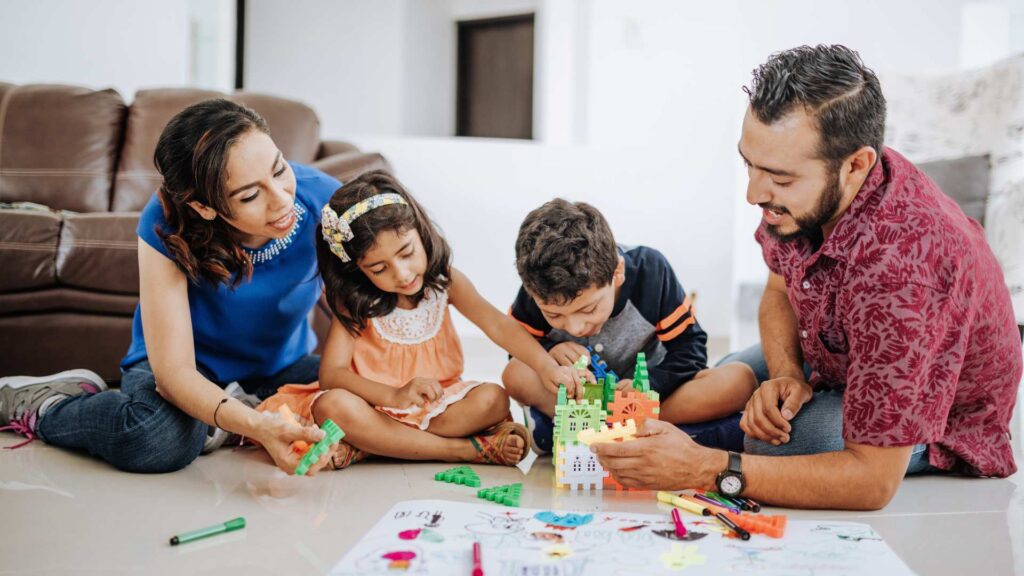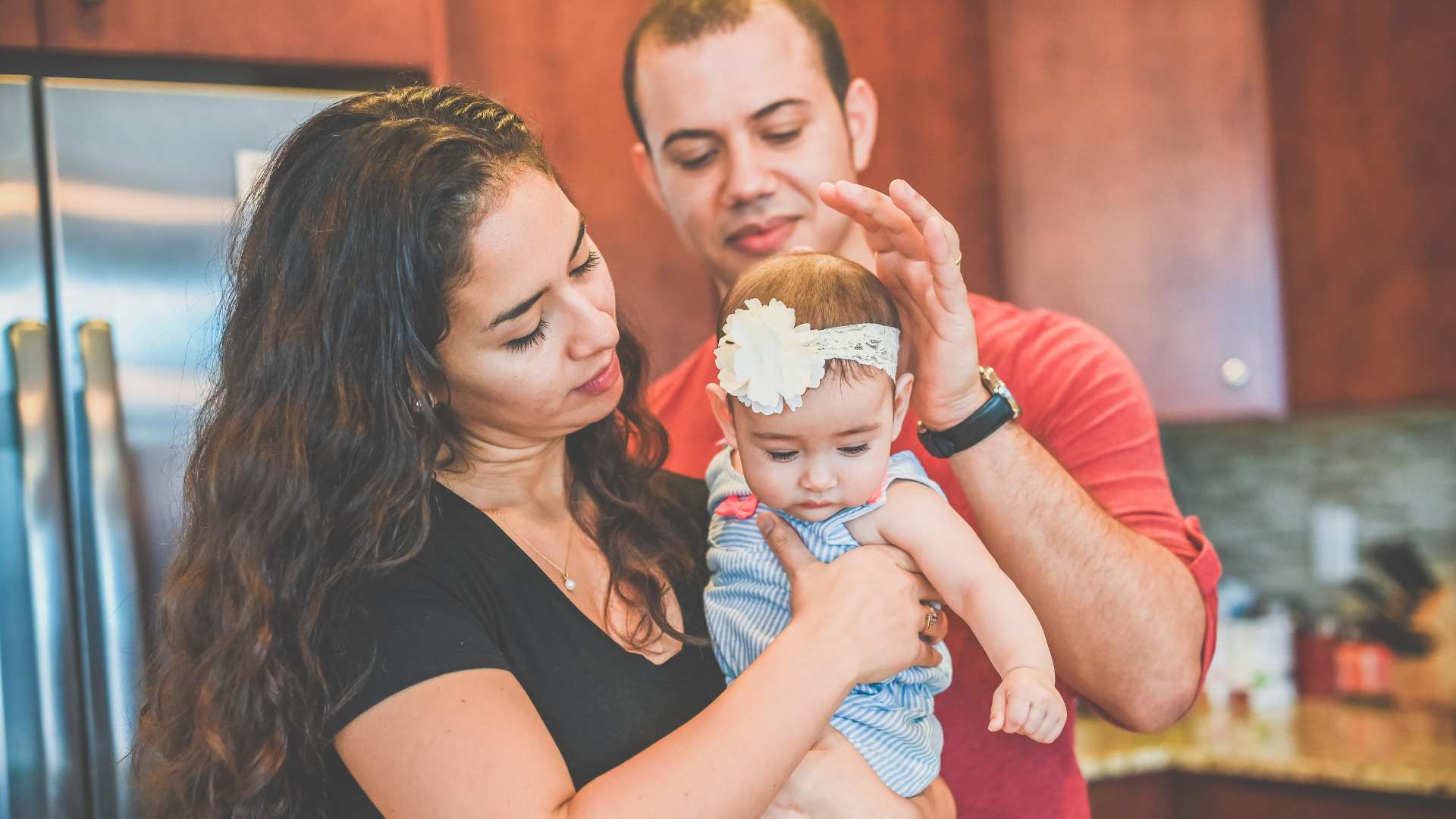Tabla de contenidos
How does stigma in autism affect Latino families seeking diagnosis and treatment?
Stigma in autism significantly delays diagnosis and treatment for Latino families, creating barriers that prevent children from receiving timely intervention.
Cultural misconceptions, language barriers, and systemic inequities combine to create challenges that go far beyond simple access to care. However, with culturally competent support and evidence-based interventions like ABA therapy, families can overcome these barriers.
Este blog de Texas ABA Centers examines these complex dynamics and offers pathways toward more inclusive, culturally responsive care. Keep reading to learn how autism stigma impacts Latino communities and what we can do to create meaningful change.
The Reality of Stigma in Autism for Latino Families

In today’s world, autism awareness has grown tremendously, yet many Latino families continue to face invisible barriers when supporting a child on the autism spectrum. These obstacles often arise not from lack of caring or commitment, but from deeply embedded cultural beliefs, systemic inequities, and persistent stigma in autism that influence how Hispanic communities understand and address the condition.
Stigma in autism affects Latino families in profound ways, delaying diagnosis and limiting access to crucial early intervention services. When families feel shame or fear about seeking help, when healthcare providers misinterpret cultural contexts, and when support systems fail to reach those who need them most, children miss critical opportunities for growth and development.
Cultural Foundations of Autism and Stigma
Within many Latin American cultures, discipline is essential in parenting. When a child displays behaviors that differ from social expectations, such as avoiding eye contact, experiencing language delays, or having public meltdowns, some people can misinterpret these differences as parenting failures rather than neurological variations.
Parents often hear hurtful comments suggesting their child is “spoiled” or that they lack proper discipline. More damaging are persistent myths portraying autism as a punishment or vaccine-related consequence.
Una investigación publicada en la American Journal on Intellectual and Developmental Disabilities reveals how these misconceptions create overwhelming pressure for families not to share diagnoses, even with their relatives.
This autism stigma extends beyond social isolation; it directly contributes to significant disparities in diagnosis and treatment access. Studies in the Journal of Developmental & Behavioral Pediatrics demonstrate that Latino children receive autism diagnoses later than non-Hispanic white peers and more frequently present with co-occurring intellectual disabilities at diagnosis time. These delays substantially reduce opportunities for early intervention, which research consistently shows improves long-term developmental outcomes.
Systemic Barriers Perpetuating Autism Stigma
Beyond cultural factors, Latino families encounter complex systemic obstacles that reinforce stigma in autism:
Language and Communication Gaps: Most autism resources remain available only in English. Fewer than 10% of pediatric healthcare providers offer developmental screenings in Spanish, leaving families without access to essential early evaluations and creating additional barriers to understanding their child’s needs.
Financial Pressures: Both in the United States and Latin America, treatment costs create overwhelming financial strain. Research indicates that nearly half of caregivers in Latin America report severe economic difficulties due to autism-related expenses. Within the U.S., families face out-of-pocket costs, insurance complications, and shortages of local specialists that make consistent care challenging to maintain.
Healthcare Cultural Disconnects: Many Latino parents describe feeling judged or dismissed by healthcare providers who fail to recognize autism signs in Latino children or don’t thoroughly investigate parental concerns. Treatment by medical providers creates feelings of isolation and forces families to navigate complex systems without adequate support.

For immigrant families unfamiliar with the U.S. healthcare or educational systems, accessing available services becomes particularly overwhelming. The convergence of autism and stigma, language barriers, financial constraints, and institutional bias creates conditions that too often result in missed opportunities for early intervention.
Emotional Impact: Guilt, Stress, and Social Isolation
Behind every delayed diagnosis lies a family striving to do their best under tremendous pressure. Research from Research Gate demonstrates that many Latino parents experience affiliate stigma, internalizing the shame that others project onto their child’s condition. Internalized autism stigma leads to guilt, social withdrawal, and emotional exhaustion that affects the entire family system.
Mothers particularly report feeling judged by extended family, neighbors, and educators. Some families withdraw from social gatherings to avoid stares and whispered comments, while others minimize or completely hide the diagnosis to prevent community rejection or blame.
Over time, this isolation creates consequences beyond emotional distress. The National Autistic Society reports that approximately 35% of caregivers leave their employment to provide care for their neurodiverse child. When support systems are inadequate or inaccessible, Latino families bear the entire caregiving burden independently, often at significant personal and financial cost.
Educational Challenges and Autism Stigma
The effects of stigma in autism and systemic barriers extend well beyond initial diagnosis. Latino families frequently struggle to establish effective partnerships with educational institutions. Many find the Individualized Education Program (IEP) process confusing, feel excluded from critical decision-making, or believe teachers lack adequate knowledge about their child’s specific needs.
Even when parents demonstrate high levels of engagement, affiliate stigma and language barriers can impede collaboration with educators. The result is that neurodivergent children may miss crucial educational accommodations and support services that could significantly impact their development and learning outcomes.
Building Solutions: Culturally Responsive Autism Care

Addressing autism and stigma within Latino communities requires comprehensive, culturally informed approaches that go beyond surface-level accommodations:
Culturally Competent Service Delivery
Actual cultural competence extends far beyond translating materials into Spanish; it involves understanding cultural values, beliefs, communication patterns, and family dynamics. When healthcare providers invest time in building trust and demonstrating cultural humility, families become more likely to engage actively in services and maintain consistent care.
Research shows that culturally adapted interventions respecting families’ languages, traditions, and lived experiences produce measurable improvements in emotional well-being, family engagement, and overall quality of life. When specialists design care with cultural considerations at the forefront, families feel more valued, supported, and empowered throughout their journey.
Evidence-Based Interventions and Early Support
El Análisis del Comportamiento Aplicado (ABA) therapy and early intervention represent the most research-supported treatments for children on the autism spectrum. However, their effectiveness depends heavily on accessibility and family trust. When Latino families access services that honor their language preferences and cultural values, and when acceptance replaces autism stigma, children demonstrate remarkable progress.
Cultural adaptations become essential when implementing evidence-based treatments like ABA therapy, which achieves optimal effectiveness when delivered in ways that resonate with each family’s unique cultural background and values.
Creating Change: Community Action and Advocacy
Addressing stigma in autism requires coordinated community efforts that challenge existing narratives while building new support systems. Healthcare providers, educators, and community leaders must work together to create environments where families feel safe seeking help and accessing services.
Community education programs that address myths and misconceptions about autism and stigma can help shift cultural attitudes over time. When trusted community members who understand cultural contexts deliver these initiatives, they can be particularly effective in creating lasting change.
Texas ABA Centers: Supporting Families with Cultural Understanding
En Texas ABA Centers, we recognize that addressing autism stigma requires more than awareness; it demands action, cultural competence, and genuine commitment to family-centered care. We provide comprehensive diagnostic testing, early intervention services, and ABA therapy without waiting lists, accepting most insurance coverage to reduce financial barriers.
Our culturally competent team supports families with respect, empathy, and understanding, regardless of cultural background or language preference. Whether you communicate in English, Spanish, or both languages, we’re prepared to guide your family through every step of the process with dignity and cultural sensitivity.
Moving Forward: Hope and Transformation
Breaking down stigma in autism within Latino communities represents more than increasing awareness; it’s about creating fundamental change. It means challenging silence, transforming harmful narratives, and replacing shame with comprehensive support systems. Every child deserves opportunities to develop, discover their potential, and experience acceptance for who they are. Every parent deserves access to the tools, resources, and encouragement necessary to support their child’s growth.
If you’re a caregiver, educator, or advocate, remember that you’re not alone in this journey. Whether you’re seeking an initial diagnosis or exploring therapeutic options, Texas ABA Centers stands ready to provide support. Together, we can build a more inclusive future where every voice is valued, and every family receives the respect and support they deserve.
Contact us today to learn more about our services and discover how we can support your family by calling (877) 771-5725 o reaching out online.







